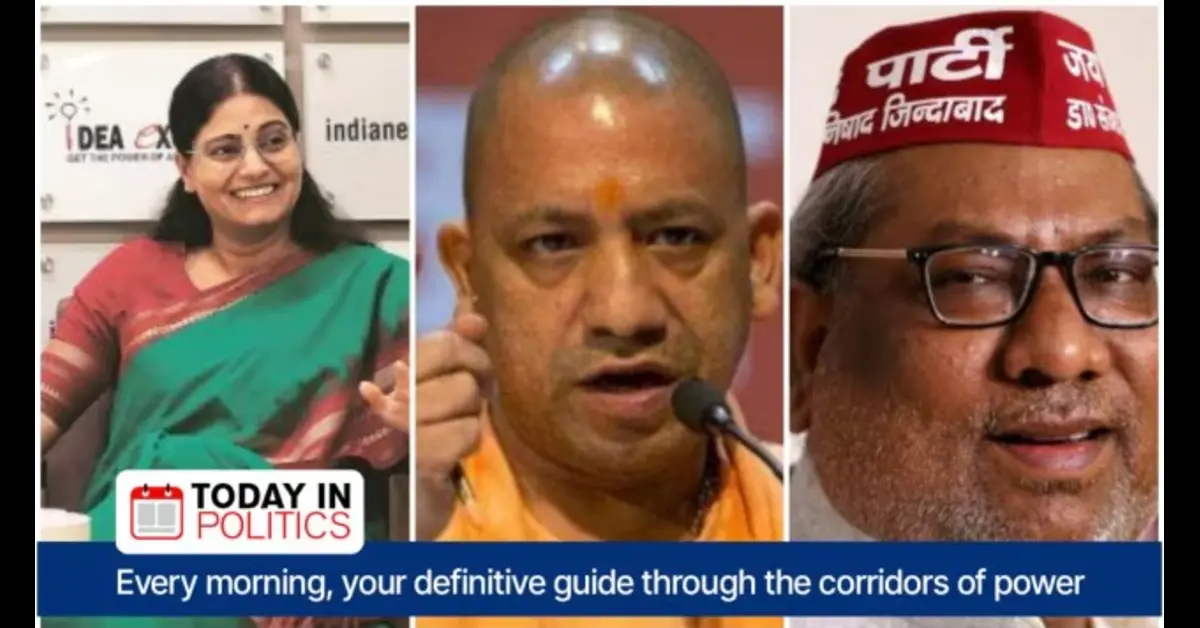Table of Contents
Exploring BJP’s Potential Strategies to Address Political Challenges in Uttar Pradesh
Introduction
The political landscape in Uttar Pradesh (UP), India’s most populous state, is often a bellwether for national trends. Recently, the Bharatiya Janata Party (BJP) has been facing rumblings of dissent from its allies in UP, raising questions about its strategy and future course of action. As the state gears up for the upcoming elections, the BJP must navigate these challenges carefully to maintain its dominance. This article delves into the sources of dissent, the possible repercussions, and the strategies the BJP might employ to address these issues.
Understanding the Dissent
The dissent among BJP’s allies in UP stems from multiple factors, including:
- Seat-Sharing Disputes: Conflicts over seat allocations for upcoming elections.
- Policy Differences: Disagreements on key policy decisions and their implementation.
- Leadership Issues: Clashes between central leadership directives and local leadership ambitions.
Key Allies Expressing Dissent
Several key allies have voiced their concerns, including:
- Apna Dal (S): A significant player in UP politics, Apna Dal has expressed dissatisfaction with its treatment and the number of seats offered.
- Suheldev Bharatiya Samaj Party (SBSP): Led by Om Prakash Rajbhar, SBSP has been vocal about policy disagreements and alleged marginalization.
- Smaller Regional Parties: Various smaller parties have also raised issues regarding their roles and representation within the alliance.
Potential Repercussions
The dissent among allies could have far-reaching implications:
- Electoral Setback: A fragmented alliance could weaken BJP’s position in crucial constituencies.
- Public Perception: Ongoing conflicts might erode public confidence in the BJP’s ability to maintain unity and governance.
- Opposition Advantage: A disunited BJP alliance could provide the opposition with an opportunity to consolidate their position.
BJP’s Possible Strategies
To address the dissent and strengthen its position, the BJP might consider the following strategies:
Negotiation and Reconciliation
- Open Dialogue: Initiating open and constructive dialogue with dissenting allies to understand and address their concerns.
- Seat Adjustments: Revisiting seat-sharing arrangements to accommodate allies’ demands and ensure fair representation.
- Policy Alignment: Aligning key policies with allies’ interests to foster a sense of inclusion and partnership.
Strengthening Party Structure
- Local Leadership Empowerment: Empowering local leaders to take more significant roles in decision-making to bridge the gap between central directives and grassroots realities.
- Internal Communication: Improving internal communication Rumblings channels to ensure that grievances are promptly addressed and resolved.
Building Alliances Beyond Traditional Boundaries
- New Partnerships: Exploring alliances with new regional parties and independent candidates to broaden the support base.
- Inclusive Campaigns: Designing inclusive campaign strategies that resonate with diverse voter groups and reflect a collaborative approach.
Public Engagement and Image Management
- Transparent Communication: Engaging with the public transparently about the efforts being made to resolve internal conflicts.
- Highlighting Achievements: Focusing on the government’s achievements and development initiatives to divert attention from internal dissent.
Monitoring and Adaptation
- Continuous Monitoring: Keeping a close watch on the evolving political dynamics and adapting strategies accordingly.
- Feedback Mechanisms: Implementing feedback mechanisms to gather insights from party workers and allies about the effectiveness of the adopted strategies.
FAQs
What is causing dissent among BJP allies in UP? The dissent is primarily due to seat-sharing disputes, policy differences, and Rumblings leadership issues within the alliance.
Which key allies are expressing dissent? Key allies expressing dissent include Apna Dal (S), Suheldev Bharatiya Samaj Party (SBSP), and several smaller regional parties.
What are the potential repercussions of this dissent? Potential repercussions include electoral setbacks, erosion of public confidence, and an advantage for the opposition.
How might the BJP address the dissent among its allies? The BJP might address dissent through negotiation and reconciliation, Rumblings strengthening party structure, Rumblings building alliances beyond traditional boundaries, public engagement, and continuous monitoring.
Why is UP significant for the BJP? UP is significant for the BJP as it is India’s most populous state, often serving as a bellwether for national political trends and crucial for electoral victories.
How can public engagement help BJP manage dissent? Public engagement can help by transparently communicating efforts Rumblings to resolve conflicts and highlighting the government’s achievements, thereby maintaining public confidence.
Kejriwal Opposes Bail Plea, Alleges Witchhunt
Conclusion
Amid the rumblings of dissent from allies in Uttar Pradesh, the BJP faces a critical test of its political acumen and leadership. By adopting a strategic and inclusive approach, the BJP can navigate these challenges and strengthen its alliance. Rumblings Ensuring unity and addressing grievances promptly will be crucial for maintaining its dominance in UP and setting the stage for future electoral successes.
